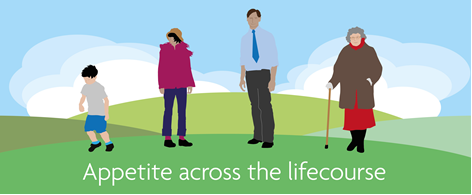Recent research suggests eating most of our calories in the evening – the pattern most common in the UK – may also be linked to obesity. We’re not alone in eating late. As our lifestyles have become more demanding and irregular, so have our meal patterns. Compared with 30 years ago, more meals are skipped, or eaten on the go, and later in the day. The underlying mechanisms are not entirely clear, but it is suggested that inconsistent or unusual eating patterns, working night shifts, and jet lag can disrupt our internal clocks, which in turn affects our appetites and digestion. Also, when we eat irregularly or skip meals we also tend to make bad food choices, because we’re so hungry we choose less healthy foods or larger portions. Ultimately, it is the type of foods we choose and portion sizes that have the biggest impact on our health.
As a Professor of Appetite Research at the University of Aberdeen, The Rowett Institute, this is my area of research. It is important all research findings are accessible to help inform everyone about the issues we are facing and that is why I am discussing my findings at an important event in Scotland this October.
A joint meeting between INTERFACE and Food and Drink Federation Scotland on October 11th at the Queen Margaret University in Edinburgh, ‘Just for You - shaping the future of meals & snacks for the generations & lifestyles’ will enable me to discuss the issues directly with the food and drink industry. Throughout life, our food is not just a fuel, but an enjoyed social and cultural experience. Appetite is a major influence to what and when we eat - we are all experts in food, because we do it every day, so we should consider every eating episode as a chance for nutrition to positively benefit our health. This free event will provide an opportunity for retailers and manufacturers to explore how we can help people make healthier choices and how we can inspire people to make better choices, by sharing evidence-based research. The meeting is looking to invite manufacturers of any size that are looking to develop existing, or create new, products that could enhance their portfolio and reach new markets, so that together we can help all generations have a healthier future. I will be discussing appetite across the lifecourse and relevant case studies where diet can impact on health.
By working together, we can hopefully better understand the food choices we make and make a positive difference to improve health and wellbeing.
Professor Alex Johnstone.
